Related reading
Ever found yourself intrigued by those fantastic folks who can magically manage resources, making every business project look like a walk in the park?
Yes, those superheroes, are also known as resource managers. This cool-sounding title does more than impress at dinner parties – it represents an essential role in any business setup.
A resource manager plays a vital role in any organization, ensuring that the right people with the right skills are allocated to projects and tasks. They act as a bridge between various departments, collaborating with project managers, team leads, and HR to maximize resource utilization and optimize productivity. With their expert knowledge of the workforce, they can anticipate staffing needs, identify skill gaps, and recommend hiring or training strategies.
A resource manager also keeps a keen eye on budgets and timelines, making sure that projects are adequately resourced and delivered on time. In short, they are the master orchestrators behind successful project execution.
Why resource management is important for businesses
Effective resource management ensures that the right resources are allocated to the right projects at the right time, leading to improved project outcomes. It allows businesses to maximize their return on investment, as they can identify potential bottlenecks, manage risks, and make informed decisions based on resource availability. Additionally, strong resource management promotes collaboration and transparency among team members, fostering a culture of productivity and accountability.
Resource management promotes effective project management and timely execution of tasks. By ensuring the availability of necessary tools, equipment, and materials, businesses can deliver projects on time, leading to increased customer satisfaction and improved reputation.
The various resources a manager needs to handle
Resource manager needs to effectively manage their team, ensuring that they are assigned appropriate tasks and responsibilities, and their skills are utilized to their fullest potential. They must also handle issues related to recruitment, training, performance appraisal, and employee welfare.
Physical resources include assets such as infrastructure, equipment, and facilities. It is crucial for a resource manager to ensure that these resources are properly maintained and that there is an appropriate allocation of resources based on the organization's needs. Furthermore, managing inventory, procurement, and logistics also falls within the scope of a resource manager's responsibilities.
Technological resources encompass software, hardware, and other technological tools that enable smooth operations within an organization. This includes managing IT infrastructure, software licensing, and data security, and ensuring that the organization stays updated with the latest technology trends.
Skills required for a successful resource manager
1. Communication skills
As a resource manager, clear and effective communication is vital. You need to be able to articulate objectives, expectations, and project timelines clearly to your team members, stakeholders, and clients. Some of the best practices one can follow to maintain effective communication across the team are:
- Active listening: Resource managers need to listen to their team members and stakeholders actively. This means giving your full attention, empathizing with their concerns, and asking follow-up questions to ensure you understand their needs.
- Clear and concise communication: Resource managers must be able to convey information clearly and succinctly. Use simple language, avoid jargon, and ensure your messages are easily understood by all recipients.
- Conflict resolution: As a resource manager, you'll encounter conflicts within teams or between stakeholders. Having strong conflict resolution skills can help you address issues promptly and find mutually beneficial solutions.
- Adaptability: Every individual communicates differently, so being adaptable in your communication style is vital. Some team members may prefer face-to-face meetings, while others might prefer email or instant messaging. Adapt to their preferences to ensure effective communication.
By honing these communication skills, you can become a resource manager who can foster collaboration, resolve conflicts, and ensure efficient communication within your organization.
2. Organizational skills
Resource management involves juggling multiple tasks and deadlines simultaneously. Therefore, strong organizational skills are crucial to keep everything running smoothly. This includes creating schedules, assigning resources, and tracking project progress. To develop your organizational skills, start by creating a system for managing your own time and tasks. Utilize tools such as calendars, to-do lists, and project management software.
Delegate tasks effectively, ensuring that each team member understands their responsibilities. Stay updated with industry trends and best practices to optimize resource allocation.
3. Problem-solving skills
Resource managers are often faced with unexpected issues or conflicts that require quick resolution. Being able to think critically and find creative solutions is essential in such situations.
It's crucial to develop analytical thinking abilities to identify and evaluate problems accurately. This involves breaking down complex issues into manageable parts and critically analyzing information. Creativity plays a significant role in finding innovative and unique solutions. Resource managers should prioritize thinking outside the box to develop creative problem-solving strategies. Strong decision-making skills also enable resource managers to choose the best course of action.
They must weigh all available options, consider potential consequences, and make informed decisions swiftly.
4. Leadership skills
As a resource manager, you'll be responsible for overseeing a team and ensuring their productivity and growth. One essential leadership skill is effective communication, as you'll need to convey expectations and feedback to your team members clearly. Additionally, being able to motivate and inspire others is important to maintain a positive and productive work environment. Another essential skill is the ability to make informed decisions and solve problems efficiently, as resource management often involves handling complex situations.
5. Analytical skills
Resource managers need to analyze data and make data-driven decisions. This includes forecasting resource needs, identifying bottlenecks, and optimizing resource allocation. These skills enable you to gather, interpret, and analyze data to make informed decisions.
You need to have strong problem-solving abilities, allowing you to identify issues and find effective solutions. A resource manager must have a keen eye for details, as this is essential when analyzing various data sets and reports. Being able to think critically and objectively is important, as it helps you make sound judgments based on the information available.
Being proficient in data analysis tools and techniques such as statistical analysis and trend forecasting is vital for effective resource management.
6. Negotiation skills
Negotiation skills allow you to find common ground and reach a compromise with stakeholders. This is especially important when resources need to be allocated amongst various projects or departments. By effectively communicating and understanding others' needs, you can navigate complex situations and ensure that resources are distributed fairly.
Additionally, negotiation skills enable you to advocate for your team and secure the necessary resources for project success. Being able to articulate the value and importance of your team's work, while also being open to feedback and alternative solutions, can help you garner support and secure the resources needed.
As a resource manager, you will inevitably encounter disagreements or competing interests. By engaging in constructive negotiations, you can identify shared goals and work towards mutually beneficial outcomes, fostering collaboration and strengthening relationships along the way.
Education and qualifications for a resource manager
Becoming a resource manager requires a specific set of skills and qualifications to effectively manage and allocate resources within an organization. While there is no one-size-fits-all path to becoming a resource manager, there are key educational requirements that can help you in this career.
A bachelor's degree in business administration, project management, or a related field is often a minimum requirement. Additionally, obtaining industry-recognized certifications like the Project Management Professional (PMP) from the Project Management Institute can provide a significant advantage. These certifications showcase your expertise and understanding of resource management methodologies and best practices.
Continuing education and professional development are also crucial in this rapidly evolving field. Attending workshops, and conferences, and staying up-to-date with current trends are essential to excel as a resource manager. Additionally, honing your skills in areas such as data analysis, stakeholder management, and conflict resolution can prove invaluable in this role.
Other useful qualifications and certifications
Other than a formal education, there are various qualifications and certifications that can greatly benefit a resource manager.
One such certification is the Certified Resource Management Professional (CRMP) designation. This credential, offered by the Resource Management Institute (RMI), validates a resource manager's expertise and proficiency in the field.
The CRMP certification covers a wide range of topics essential for effective resource management, including resource planning, capacity management, skill and competency management, and organizational change management. By gaining this certification, resource managers demonstrate their commitment to enhancing their skills and staying up-to-date with industry best practices.
In addition to the CRMP certification, there are other valuable qualifications and certifications for resource managers. These may include project management certifications like the Project Management Professional (PMP) or the Agile Certified Practitioner (ACP) certification. These certifications provide resource managers with a solid foundation in project management methodologies and tools, enabling them to effectively manage resources in a project-based environment.
Gaining experience in resource management
If you're interested in pursuing a career in resource management, getting the right experience is key. Fortunately, there are several entry-level jobs that can serve as stepping stones towards this goal. One common entry point is an assistant or coordinator role in a company's resource management department. In this role, you'll gain insight into the inner workings of resource allocation and project management.
Another option is to start your career as a project assistant or analyst, where you'll assist with tracking and optimizing resources for specific projects.
Working as a data analyst or researcher can also provide valuable insight into understanding and managing resources effectively.
Importance of gaining experience in different business functions
Gaining experience in the different functions of a business, helps you develop a broader perspective and the ability to see the bigger picture.
This enables you to make more informed decisions when it comes to allocating resources and managing budgets. Additionally, it allows you to better collaborate with different departments and understand their unique needs and challenges.
Moreover, gaining experience in different areas can help you identify your strengths and weaknesses. It gives you the opportunity to explore your interests and find out where you excel and where you need to improve. This self-awareness can be invaluable in resource management, as it allows you to leverage your strengths to optimize resource allocation and seek out learning opportunities to address your areas of improvement.
Understanding the technology involved in resource management
With the right tools and systems in place, resource managers can streamline processes, optimize allocation, and enhance productivity. One key technology employed in resource management is resource planning software. This allows managers to track and coordinate resources, assign tasks, and monitor progress in real time. Additionally, project management tools and collaboration platforms facilitate seamless communication among team members, ensuring everyone stays on track and deadlines are met. Furthermore, data analytics and reporting tools provide valuable insights into resource utilization, allowing managers to make data-driven decisions and allocate resources more effectively. By understanding and leveraging these technologies, aspiring resource managers can position themselves for success in this dynamic field.
Importance of technological competence in resource management
Technology enables enhanced visibility and control over resources. With the right tools and systems in place, managers can easily track and monitor the allocation, usage, and availability of resources. This level of transparency allows for better decision-making and optimization of resource utilization.
Technological competence improves efficiency and productivity. Automation and digitization of resource management processes streamline workflows, eliminate manual errors, and reduce time-consuming tasks. This frees up valuable time and resources that can be redirected towards more strategic activities, ultimately boosting overall performance.
It also facilitates better collaboration and communication among team members. With cloud-based platforms and integrated systems, employees can easily access and share information, ensuring that everyone is on the same page. This leads to improved coordination and teamwork, enhancing the effectiveness of resource management efforts.
Common resource management software and tools
Effective resource management is integral to the smooth functioning of any organization, and technology plays a crucial role in achieving this goal. There are several resource management software and tools available that aid businesses in streamlining their resource allocation and tracking processes. Here are some commonly used ones:
1. Resource scheduling software: These tools enable organizations to schedule and manage resources efficiently. They provide a centralized platform to allocate resources, track availability, and avoid conflicts.
2. Task management software: With these tools, businesses can assign tasks, set deadlines, and monitor progress. They help in optimizing resource utilization by ensuring everyone is on the same page and has a clear understanding of their responsibilities.
3. Project management software: These comprehensive tools assist in managing resources across various projects simultaneously. They provide insights into resource availability, and dependencies, and allow easy collaboration among team members.
4. Time tracking software: To effectively manage resources, businesses need visibility into how time is being spent. Time tracking software enables accurate recording of hours worked, allowing managers to make informed decisions regarding resource allocation.
Choosing the right resource management software and tools depends on the specific needs of your organization. It's essential to assess functionality, user-friendliness, and integration capabilities before making a decision. Utilizing these technologies can lead to improved efficiency, cost savings, and overall enhanced resource management.
Rocketlane streamlines resource management processes with its intuitive interface and seamless integration capabilities. Try it today!
How to stay updated about the latest relevant technology
Technology advancements in this field are happening at an unprecedented pace, and it's easy to get left behind. To ensure you stay informed and on top of the game, here are a few practical tips.
1. Follow industry leaders: Keep an eye on influential thought leaders in the resource management field. Follow their blogs, subscribe to their newsletters, and engage in their online discussions to gain insights into emerging technologies.
2. Attend conferences and events: Industry conferences and events provide an excellent platform to learn about the latest technologies. Networking with like-minded professionals and attending expert-led sessions can give you a comprehensive understanding of the technological landscape.
3. Join online communities: Participate in online forums, communities, and social media groups related to resource management. These platforms are often hotspots for technology discussions, debates, and information sharing.
4. Embrace continuing education: Enroll in online courses, webinars, and workshops to enhance your knowledge base. Many educational platforms offer on-demand courses specifically designed to keep professionals informed about industry-specific technology trends.
Importance of networking within the industry for growth and opportunities
Building and nurturing relationships within the industry you operate in allows you to gain valuable insights, knowledge sharing, and career advancement. By actively networking, resource managers can stay updated with industry trends, best practices, and emerging technologies.
It offers a platform to connect with like-minded professionals, forge partnerships, and explore new opportunities for collaboration. Networking events, conferences, and online platforms provide avenues to meet industry experts, potential clients, and colleagues who can open doors to career growth and new projects. Therefore, resource managers should prioritize networking as an important tool for professional development and expanding their horizons.
FAQs
1. What are the key skills required to become a resource manager?
Key skills required to become a resource manager include strong organizational and communication skills, analytical thinking, problem-solving abilities, and the ability to work well with diverse teams.
2. What educational background is needed to become a resource manager?
While there is no specific educational requirement, a bachelor's degree in business administration, project management, or a related field can be beneficial. Relevant work experience is often more important, along with certifications such as Project Management Professional (PMP).
3. What are the typical responsibilities of a resource manager?
The typical responsibilities of a resource manager include resource planning, forecasting, task allocation, monitoring resource utilization, identifying resource needs, resolving conflicts, and ensuring projects are adequately staffed.
4. What software tools are commonly used by resource managers?
Resource managers commonly use software tools such as project management software, resource allocation software, and resource planning tools to help them effectively manage and allocate resources.
5. What are some common challenges faced by resource managers?
Common challenges faced by resource managers include balancing resource demands across multiple projects, dealing with conflicting priorities, managing tight timelines, resolving resource conflicts, and adapting to changing project requirements.






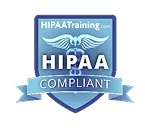
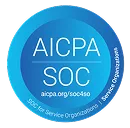
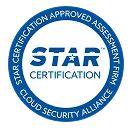
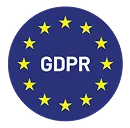
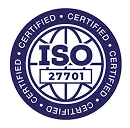









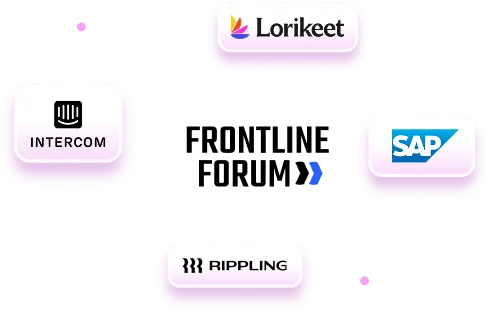
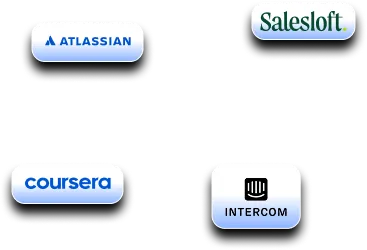
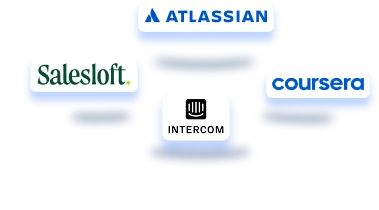
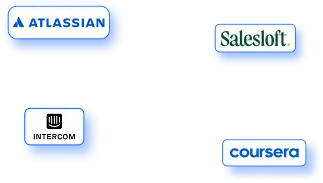
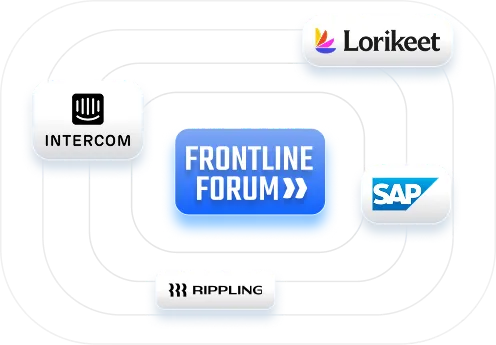
.webp)